Data Center
TELUS
Data Center Expansion
During a facility expansion for a prominent TELUS data center facility, new adiabatic dry coolers were creating noise and raising issues with compliance. Parklane designed and installed a strategic Acoustic Penthouse Solution for the rooftop coolers to ensure complete compliance and maximum operational efficiency.
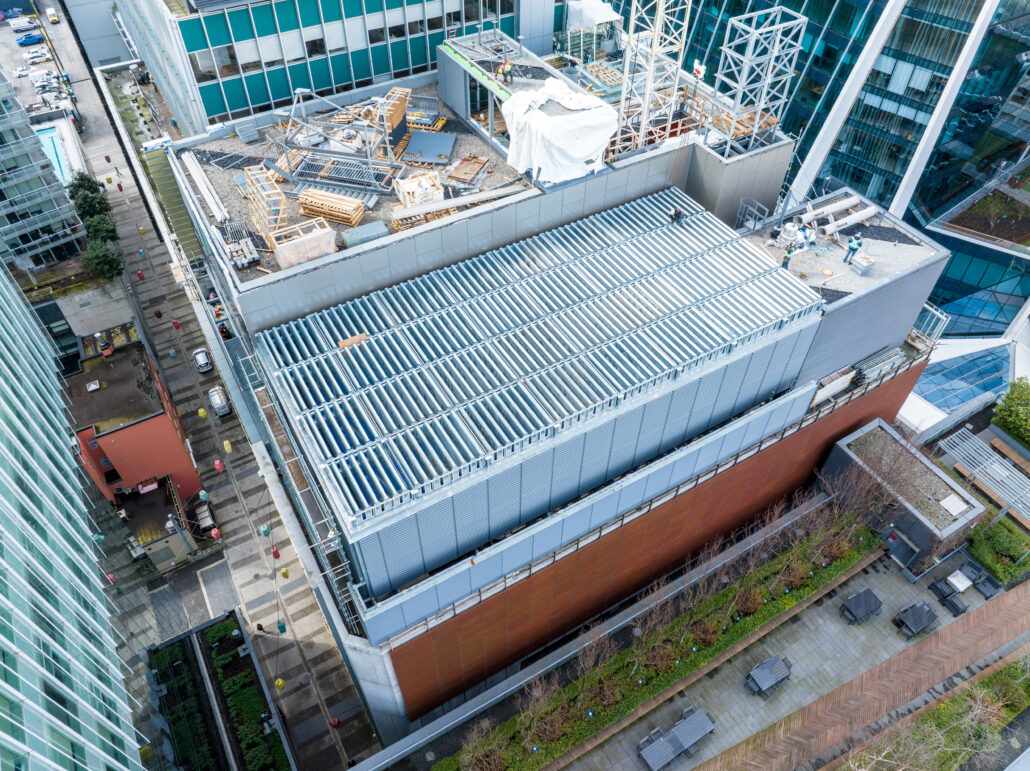
Overview
In the midst of a facility expansion, Canada’s second largest telecom company, Telus, installed new adiabatic dry coolers on its data center rooftop, which inadvertently created a noise compliance challenge with nearby high-rise condominium residents. To address this issue, a tailored acoustic penthouse was designed and implemented.
This project involved close collaboration among key stakeholders to create a solution that met strict local municipal noise by-laws while accommodating equipment limitations and aesthetic considerations.
The Project Facility
Industrial Production
The Noise Source
Adiabatic Dry Coolers
The Solution
Acoustic Penthouse
The Project Team
Mechanical Engineer – HH Angus
Acoustical Engineer – Aercoustics
OEM – Trane Technologies
GC – EllisDon
Reason for Mitigation:
Compliance within local municipal noise by-laws
Project Challenges

Noise Compliance in a Dense Urban Setting
The addition of new dry coolers resulted in elevated noise levels that affected an adjacent high-rise condominium. The project team had to quickly address this compliance issue to align with local municipal noise by-laws without compromising the performance of the cooling system.
Engineering Constraints & Equipment Performance
One of the primary technical challenges was the limited available external static pressure on the dry coolers. This constraint required the acoustic solution to be highly efficient in mitigating noise while ensuring that the cooling systems’ performance remained unaffected.
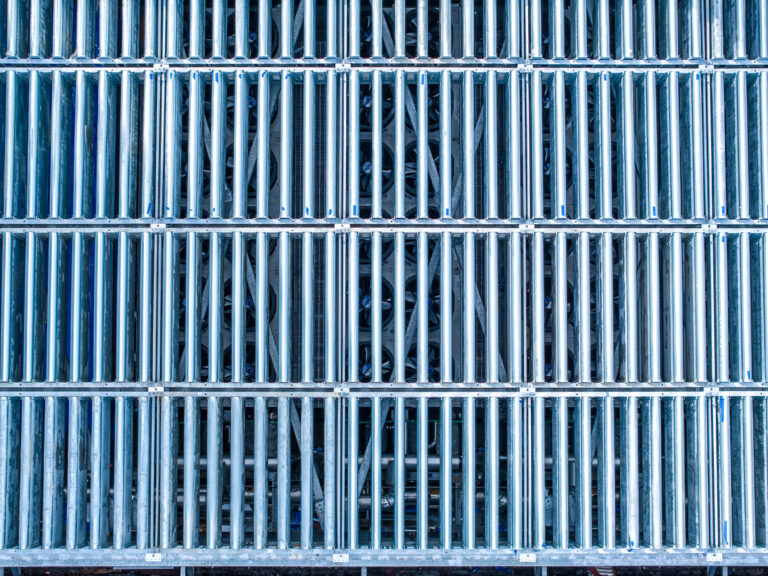
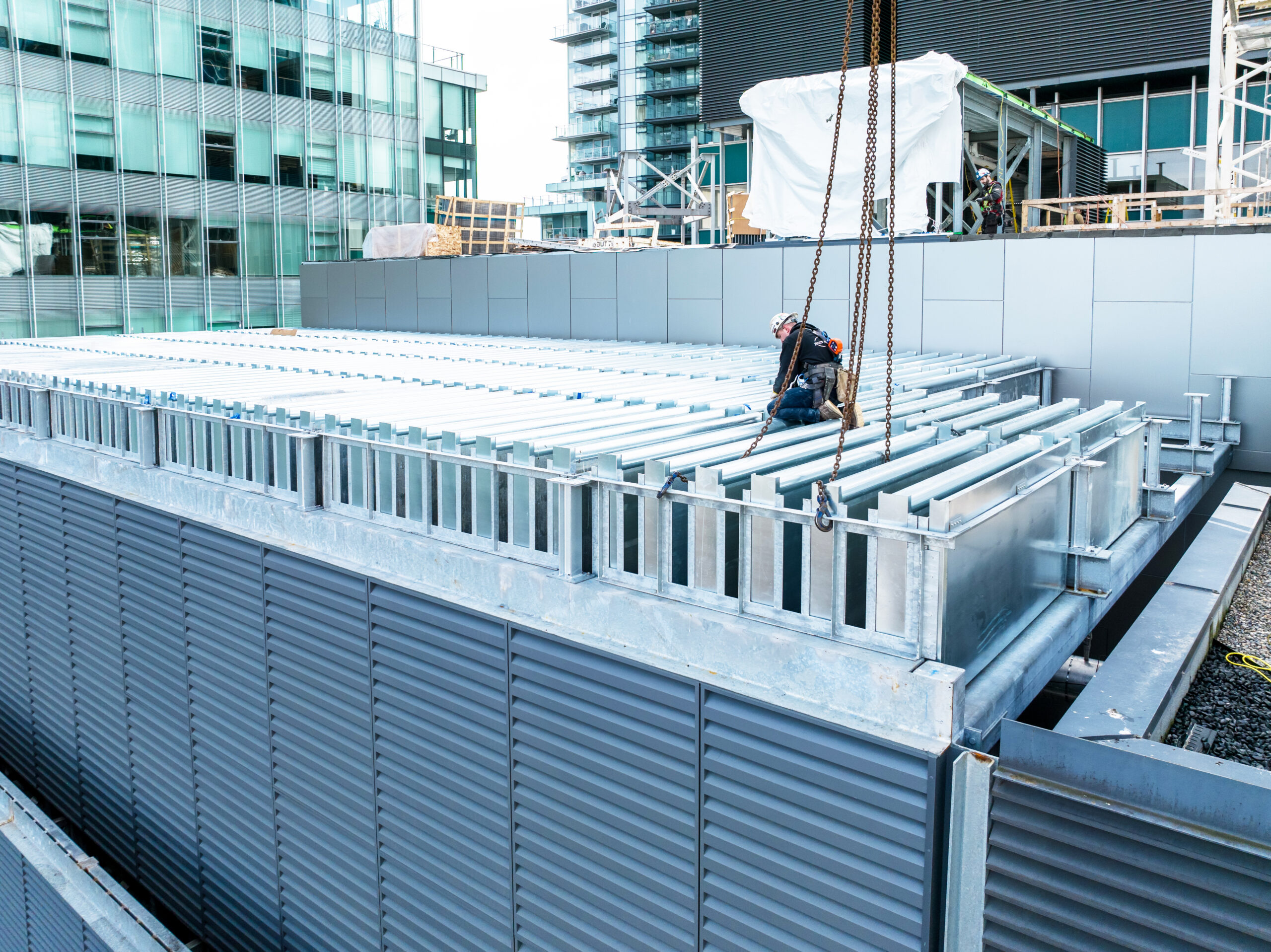
Streamlined Installation & Aesthetic Integration
Beyond technical performance, the solution needed to integrate seamlessly with the existing facility’s architecture. Additionally, reducing on-site installation time was crucial to avoid extended disruptions and to facilitate future serviceability, all while maintaining a visually appealing design.
Project Solution
Design
Acoustic Penthouse Development:
A purpose-built acoustic penthouse was designed to enclose the rooftop-mounted adiabatic dry coolers. This enclosure was engineered to effectively suppress noise emissions while maintaining necessary airflow for the coolers.
Holistic Stakeholder Collaboration:
Working closely with HH Angus, Aercoustics, Trane Technologies, EllisDon, and the architect, the team optimized the design to account for both the limited external static pressure of the coolers and critical aesthetic factors.
Architectural Nuances:
The design process carefully balanced acoustic performance with the visual demands of the urban setting, ensuring that the penthouse complemented the surrounding high-rise structures.
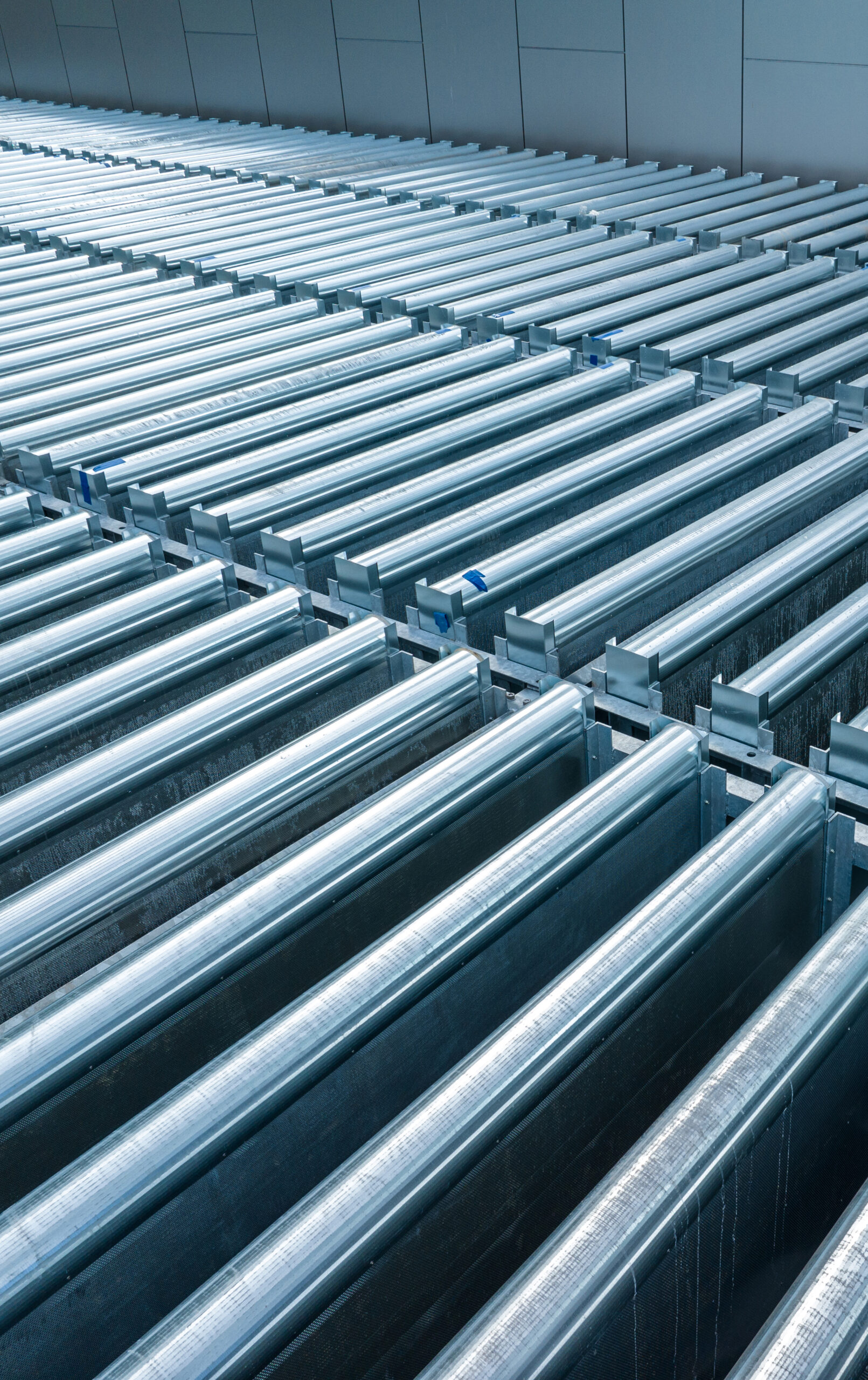
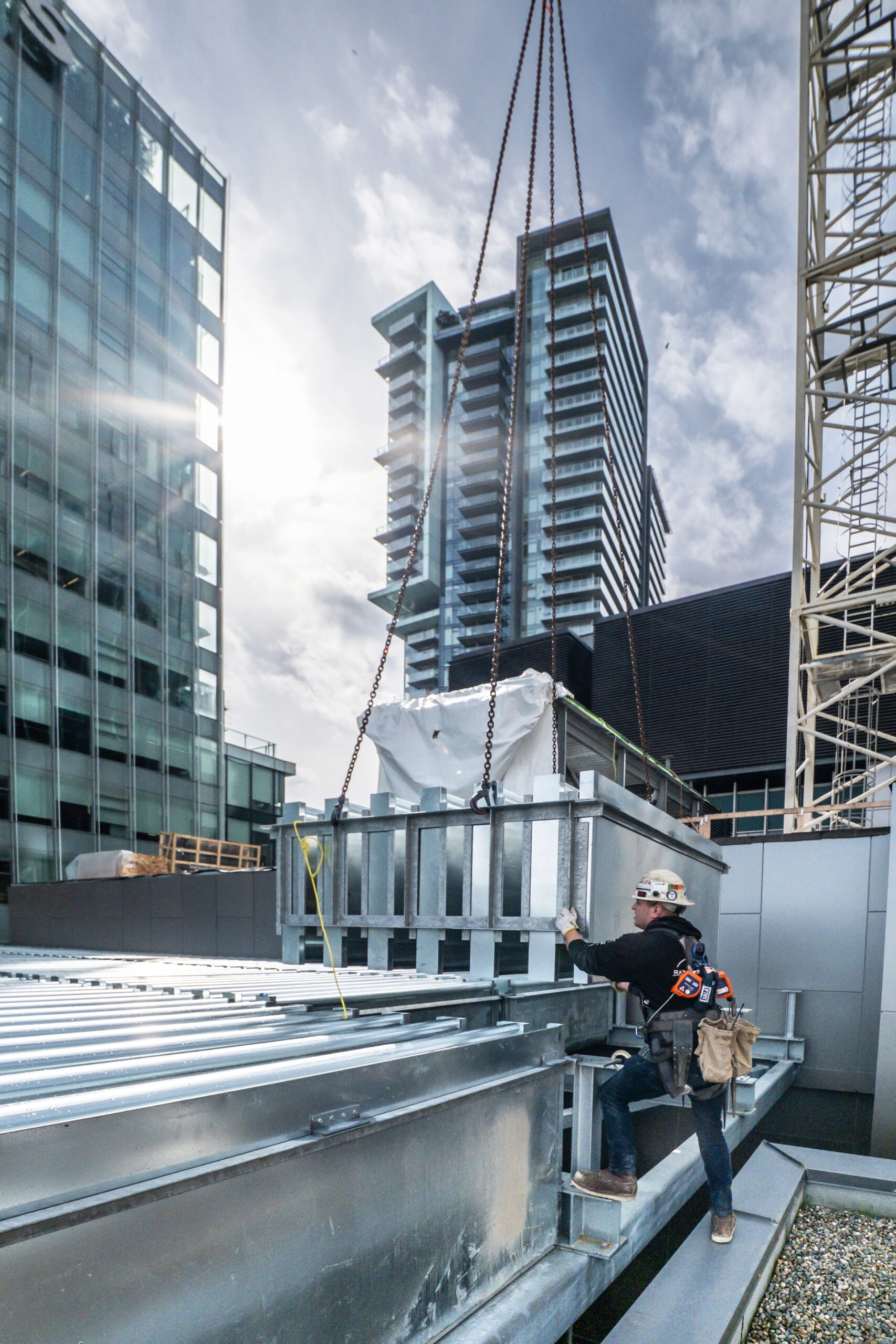
Installation
Modular Rigging Solution:
To minimize on-site disruption, a modular rigging solution was developed specifically for the discharge attenuators. This innovative approach reduced the number of required crane lifts and shortened the overall installation timeline.
Ease of Future Serviceability:
The modular design not only expedited the installation process but also ensured that major components would remain easily accessible for maintenance, reducing downtime during future service operations.
Community Response
Mitigated Noise Impact:
The acoustic penthouse effectively brought noise emissions within compliance limits, resolving the issue for the adjacent high-rise condominium.
Enhanced Urban Aesthetics:
By focusing on design aesthetics, the project delivered a solution that not only served its functional purpose but also improved the visual integration of the equipment with the surrounding urban landscape, contributing to a positive community perception.
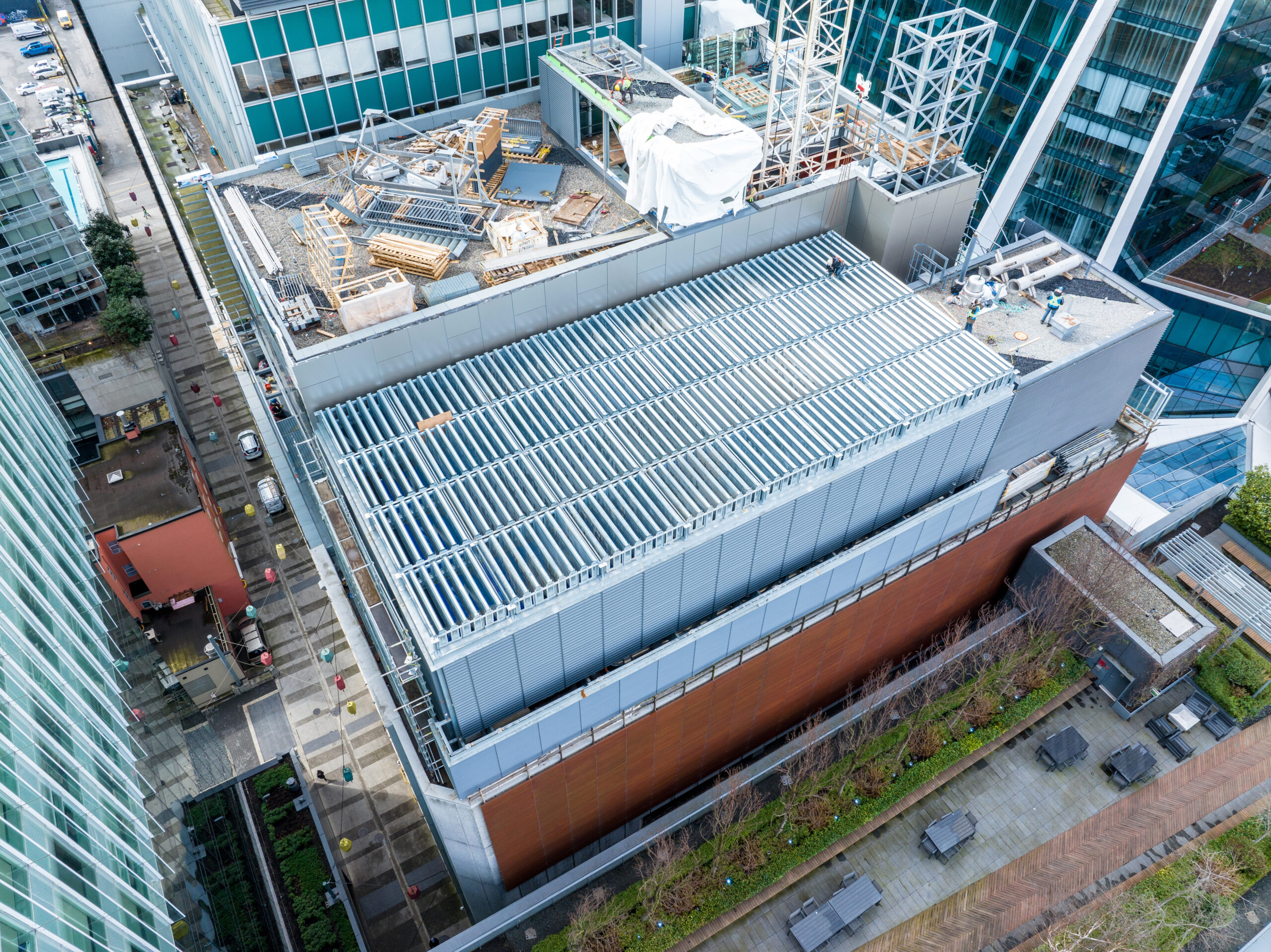
Results
The implementation of the acoustic penthouse enabled Telus to successfully mitigate noise from the newly installed adiabatic dry coolers, ensuring full compliance with local municipal noise by-laws.
The design tackled critical challenges, including equipment limitations and urban aesthetic requirements, while the modular installation approach minimized on-site disruptions and facilitated future maintenance.
Overall, the project not only safeguarded community relations by reducing noise impact but also optimized operational efficiency and provided a robust, long-term solution for the expanding data center.

Read the full story
View the full write up to learn more about how we helped this data center facility get noise compliant.
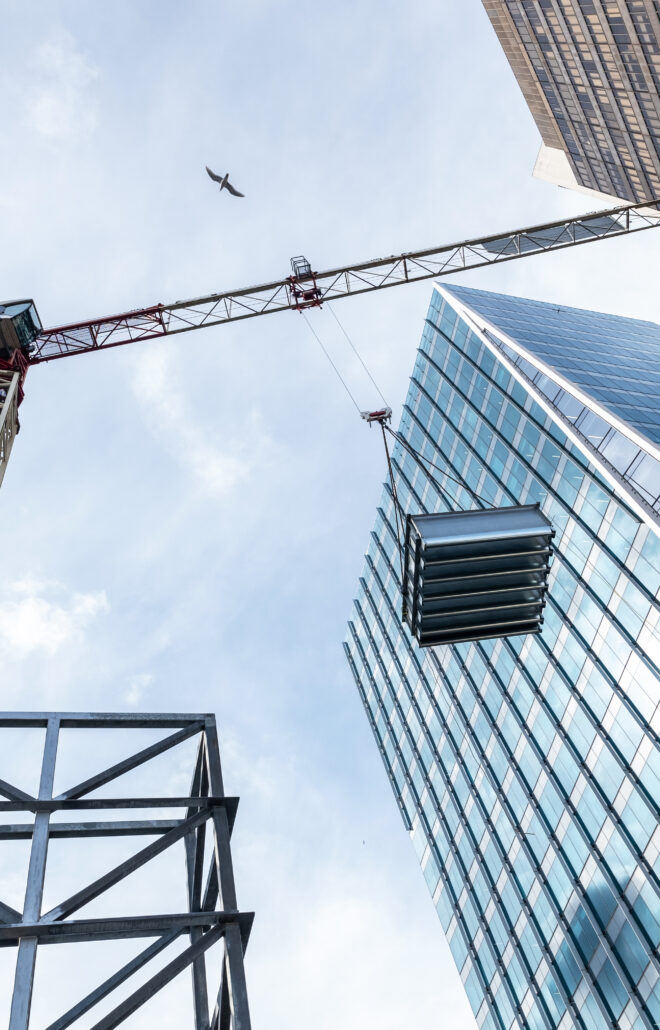
Let's work together
Contact a member of our team now to find out how Parklane can help provide an effective, customized solution to your organization’s noise control challenges.
